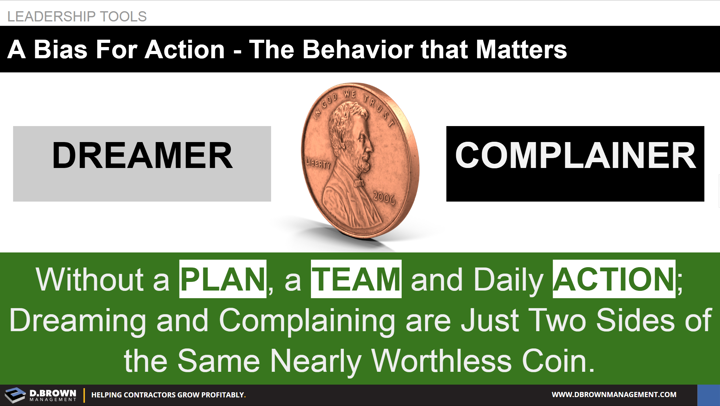The truth is that they are both just opposite sides of the same nearly worthless coin.
“Speed matters in business. Many decisions and actions are reversible and do not need extensive study. We value calculated risk taking.” - From Amazon Principles
What really matters for success in life is building the discipline and a daily habit of actually doing something to either make the dream a reality or eliminate the source of the complaint. What really matters is having a process of continuous improvement (PDCA) in place and building the agility to adjust quickly.
The great news is that these are skills that can be developed in teams no different than craft skills. Charles Duhigg describes a little bit of how the Marines changed their boot camp to teach recruits how to take action in the right direction even in the face of conflicting orders.
What would it be worth to your business if you could improve your team’s bias for action?
A core element of many of our programs is teaching teams to turn ideas into reality and problems into solutions at an accelerated rate.

